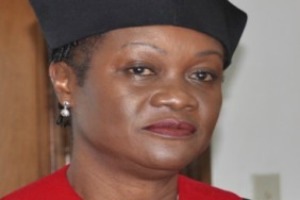A Call to Action: Liberian Politicians Must Embrace Constructive Honesty in Governance

By: Austin S Fallah-A True Son of the Planet Earth Soil and An Advocate for Social and Economic Justice for All of Humanity:
Liberia stands at a critical juncture in its political landscape, demanding urgent reflection and transformative action from politicians and the populace.
The time has come to abandon the era of voodoo politics, a realm shackled by deceit, manipulation, and a propensity for empty promises.
Instead, constructive dialogue, honesty, and positive engagement must take center stage to uplift a nation besieged by an array of challenges, deepening economic woes, and social fragmentation.
As our nation grapples with the aftermath of historical inequities and ongoing struggles, politicians must engage with the Liberian people transparently and meaningfully.
The days of obscuring the truth or pandering to sentiments that only serve short-term political gains must end.
We owe it to ourselves and future generations to engender a political climate that fosters trust, accountability, and development.
The Perils of Voodoo Politics:
Acknowledging voodoo politics means recognizing the inherent dangers lurking within political rhetoric that prioritizes manipulation over progress.
This term encapsulates a series of tactics in which politicians exploit fear, play on divisions, or promise the unattainable while bypassing substantive discourse on real solutions to pressing issues.
Reliance on such tactics has alienated the electorate and perpetuated cycles of poverty, corruption, and discontent.
Historically, Liberia has endured the consequences of decisions driven by hidden agendas, where the people’s voices have been drowned out by the cacophony of deceitfulness.
Politicians have too often behaved as gatekeepers of power rather than stewards of the public’s trust and welfare.
Senearly local and international research has shown that 51% of the Liberian population lives below the poverty line, reflecting the dire need for a shift from political gamesmanship to genuine leadership focused on improvement and empowerment.
Constructive Engagement: A Blueprint for Change:
The solution lies in adopting a framework of constructive engagement that prioritizes truth and clarity in political discourse.
Liberian politicians must strive to be leaders, educators, and societal motivators.
By providing insightful analysis, encouraging intellectual discourse, and presenting informed policy solutions, politicians will facilitate a more educated electorate capable of holding its leaders accountable.
1. Transparency: Politicians must commit to transparency in decision-making processes and financial undertakings.
This includes clear communication regarding budgets, resource allocation, and policies impact on the populace.
By openly sharing information, leaders can cultivate an environment of trust that invites collaboration and innovative solutions.
2. Empowerment and Participation: Engaging the populace meaningfully is vital.
Town hall meetings, public forums, and community-led initiatives are platforms that can bolster citizen engagement.
Politicians should actively solicit input from their constituents, valuing their perspectives and wisdom as critical to policymaking.
Empowering communities to participate in democratic processes enhances political legitimacy and nurtures a sense of ownership over local governance.
3. Focus on Education and Capacity Building: To achieve lasting changes, the citizenry must be invested in education and capacity-building.
Politicians should advocate for quality education, vocational training, and initiatives that enhance community literacy and critical thinking.
An educated populace is better equipped to navigate political landscapes and advocate for their rights, paving the way for substantive discussions and informed voting choices.
4. Positive Constructive Criticism: Politicians must embrace constructive criticism as an opportunity for growth and improvement rather than viewing dissent as a threat.
Encouraging constructive criticism in political discourse promotes a more robust democracy and fosters a culture where ideas may be unearthed, debated, and refined.
This open-minded approach can help propel Liberia towards innovative policies reflecting people’s needs and aspirations.
5. Promoting Economic Development: As Liberia struggles with economic hardship, politicians must prioritize strategies that foster economic growth.
This includes advocating for job creation, infrastructure development, and investment in local industries.
Policies that stimulate economic opportunity will yield dividends in poverty reduction and overall enhancement of living standards, generating a sense of hope and optimism in the population.
The Role of the Populace:
While the onus lies heavily on political leaders, the Liberian populace must also actively shape its political destiny.
Gone are (should be) the days when citizens should passively accept narratives fed to them by politicians.
It is time for the people to demand accountability, expect transparency, and engage in constructive dialogue.
Civic education initiatives should be promoted to instill a sense of responsibility in citizens, urging them to listen critically, question thoroughly, and participate actively in electoral processes.
Moreover, when engaging with leaders, the populace should focus on uplifting critiques that inspire rather than denigrate.
Liberians can ensure that their voices resonate clearly and contribute positively to the political climate by adopting an ethos of respect and mutual understanding in political discussions.
A Future Built on Integrity:
At this crucial moment, Liberian politicians and the populace have a profound opportunity to usher in a new era of governance characterized by integrity, transparency, and constructive engagement.
The legacy of voodoo politics must be recognized and actively dismantled in favor of policies and practices rooted in truth and accountability.
Modernized politics in Liberia, characterized by informed decision-making and genuine collaboration with the public, will facilitate healing a nation that has endured enough suffering.
By collectively foregoing the allure of deceptive tactics and choosing to prioritize substantive engagement, Liberia can chart a course toward a more prosperous and equitable future.
Let constructive honesty be our rallying cry as we stand at this crossroads.
The time for change is now, and if Liberians work together, fortified by integrity and a shared vision for progress, we will not only repair the rifts of the past but also reignite hope and drive a flourishing future for all.
The call to action is here, and it is time to answer.



















